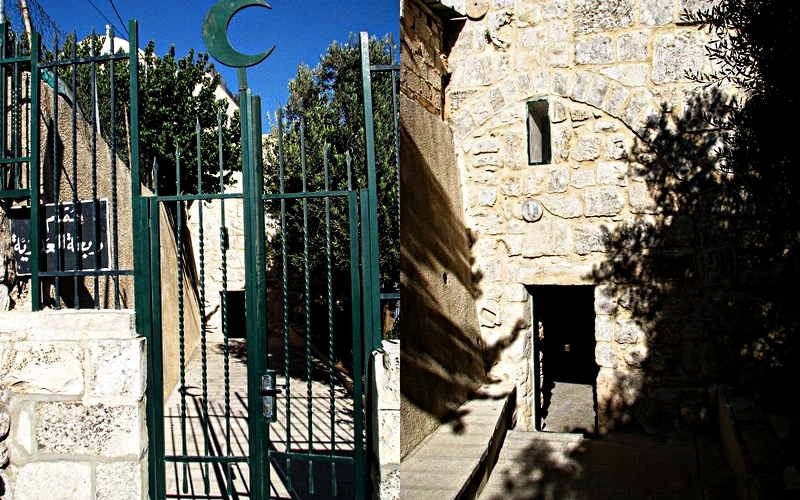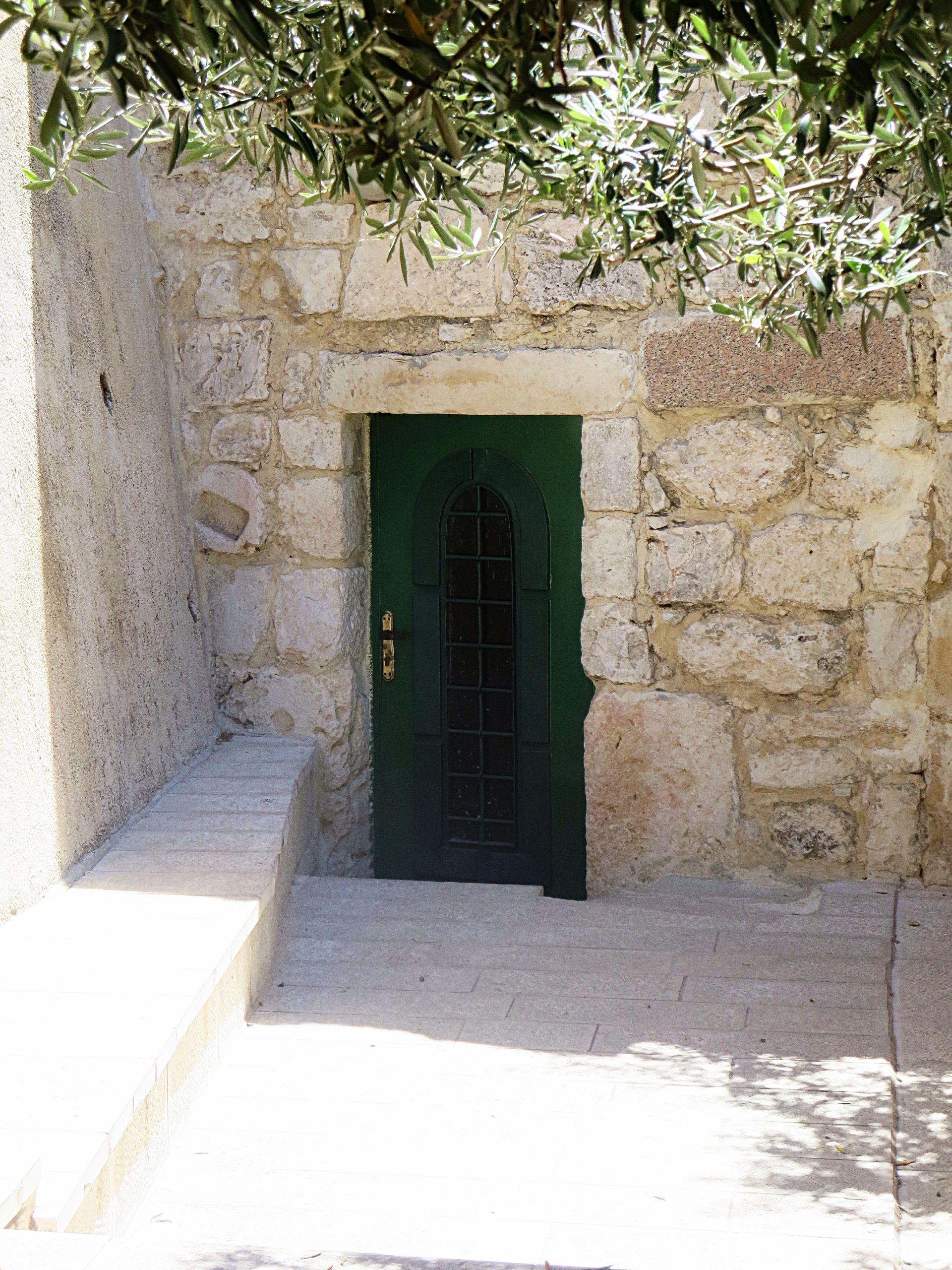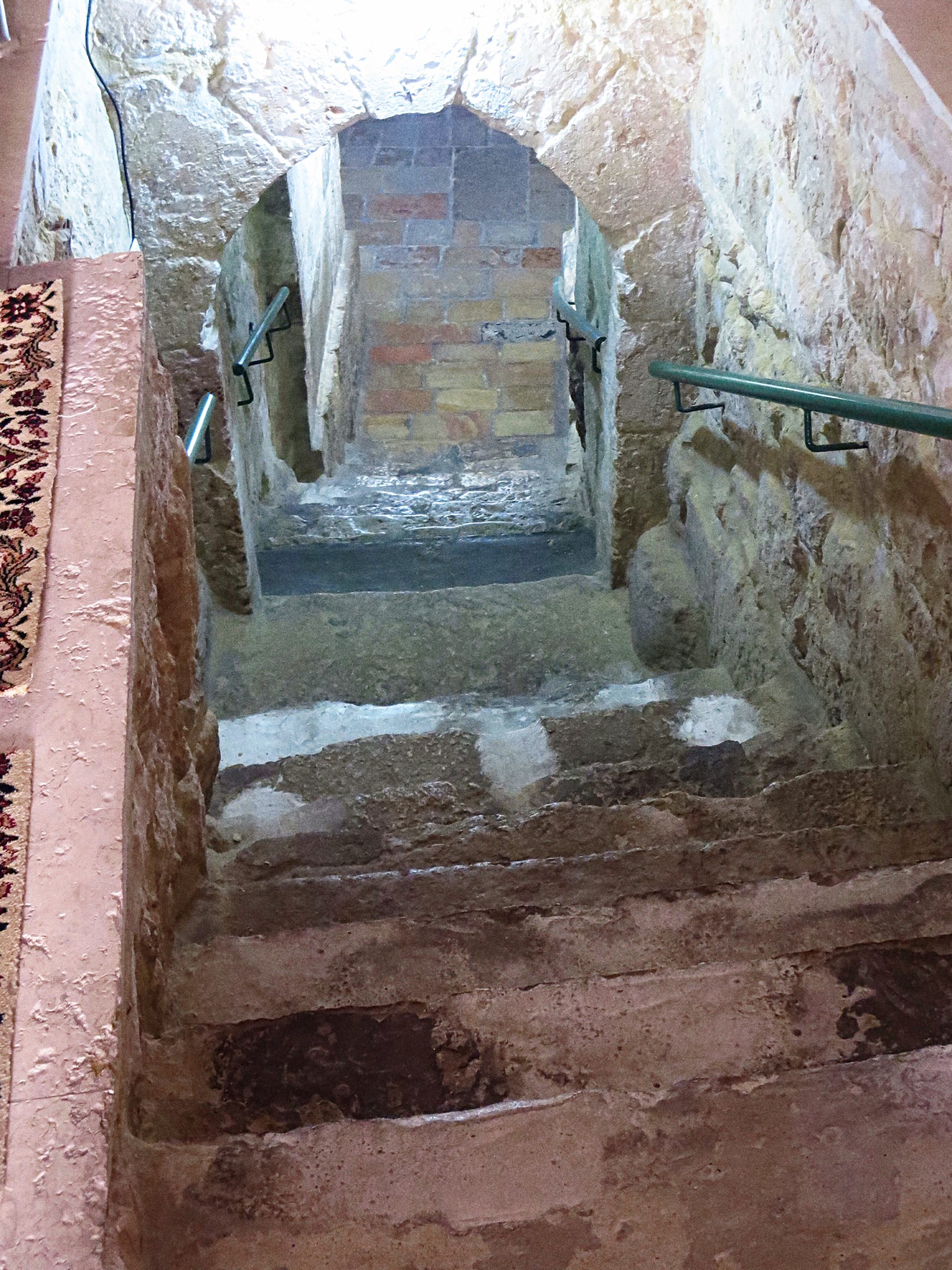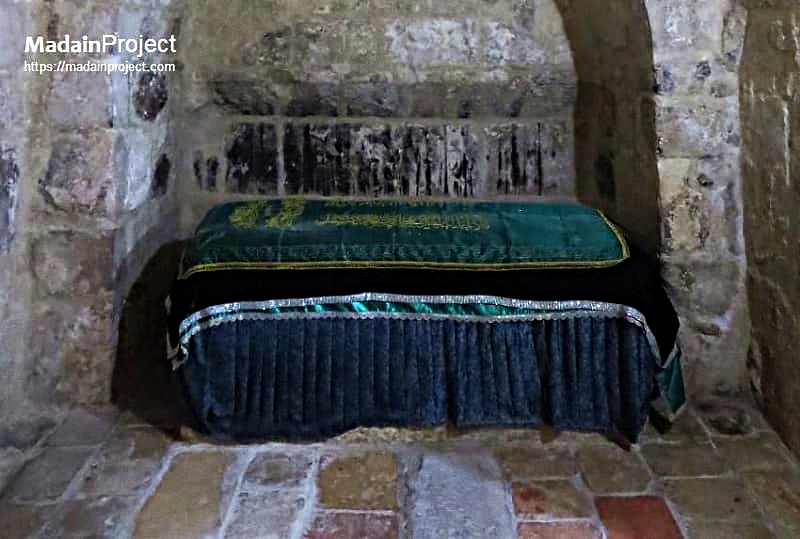Syeda Bibi Rabia Basri (R.A)
Syeda Rabi’a al-Adawiyya al-Qaysiyya (R.A) also known as Rabi’a al-Basri was a Sufi Saint from Iraq and is considered to be the first female Sufi Saint of Islam, the first in an extensive line of female Sufi mystics. She is said to have been born between 714 and 718 in Basra, Iraq.
Syeda Rabi’a Basri (R.A) is remembered with devotion and affection to this day as one of the greatest saints of the eighth century for her faith, piety, and patience.
Description
LINEAGE
Even though it is said that she belonged to the tribe of Al’Atik, whose lineage is traced back to Hazrat Nuh (A.S), Syeda Rabia (R.A) was born into a family of poor circumstances. Hazrat Fariduddin Attar (R.A) relates her story in Tazkirat al-Awliyā. On the night Syeda Rabia (R.A) came into being, it is related that there was not even a wrapping on hand to swaddle her with, nor a lamp, nor a drop of oil to anoint her navel. Her father possessed three daughters and Syeda Rabia (R.A) was the fourth. His wife told him: ‘Go to the neighbour’s house and ask them for a lamp and some oil.’ Although Syeda Rabia’s (R.A) father had already vowed not to ask anything of God’s creatures, he arose, went next door, and then returned telling his wife only, they are all asleep.’ He then fell asleep, deeply grieved, and heavy-hearted and while he slept, he dreamt that the Prophet Muhammad ﷺ came to him and said,
“Do not be grieved. You have been blessed with a daughter who will be a great saint; her intercession will be wished for by seventy thousand of my community. Tomorrow sends a letter to ‘Isa Radan, Amir of Basra, reminding him, by this sign, that every night he used to offer one hundred benedictions to me, and on Friday night, four hundred. But this Friday he has neglected me so tell him that, as a penance, he must give you a hundred dinars.”
Waking at dawn, Syeda Rabia’s (R.A) father, in tears, noted his dream down in a letter, went to the court of ‘Isa Radan, and handed it to a chamberlain to give to the Amir. After reading the letter, ‘Isa Radan commanded that ten thousand dinars should be distributed to the poor as a thanksgiving offering since the Prophet deigned to mention me.’ Ordering those four hundred dinars be given to Hazrat Rabia’s (R.A) father, he commented:
“Though I wish that such a person should come to me, rather I will come and sweep the dust from his doorstep with my beard. For God’s sake though, whenever he is in need, please let me know.”
LIFE
Syeda Rabi’a al-Adawiyya al-Qaysiyya (R.A) also known as Rabi’a al-Basri was a Sufi Saint from Iraq and is considered to be the first female Sufi Saint of Islam, the first in an extensive line of female Sufi mystics. She is said to have been born between 714 and 718 in Basra, a seaport in Southern Iraq where she spent the vast majority of her life. Much of her early life is narrated by Hazrat Fariduddin Attar (R.A), a later Sufi saint and poet. She did not leave any written works herself.
Syeda Rabi’a Basri (R.A) is remembered with devotion and affection to this day as one of the greatest saints of the eighth century for her faith, piety, and patience. The great woman mystic, saint, and Qalandar of Islam had conquered herself (Nafs) through devotion, meditation, contemplation, patience (Sabr) as well as fear and trust in Allah (Tawwakul). Syeda Rabi’a Basri (R.A) was constantly absorbed in the thought of Allah and had reached the pinnacle of mystic path i.e Fina-Fillah.
She was the fourth daughter and for this reason, she was called Rabi’a. When she was still young her mother passed away. Because of famine and poverty, she lost her three sisters, and finally, she had to become the slave of somebody as her parents died. She suffered a lot but never uttered a word of complaint. Even in such a situation, she used to perform one thousand rakaat nafil daily.
When she was auctioned as a slave for a few dirhams. She said:
“O Allah, I am a stranger, without father and mother; I have been sold in bondage, and now my wrist is broken. But despite all this, I am not distressed about anything that has befallen upon me. I only wish YOU to be content, so that I might know if I have gained your satisfaction or not.”
During the day she would do the master’s housework and at night she prayed. It is believed that one night her master saw a light surrounding her which left him captivated and, in the morning, he freed her. Thereafter, she paved her own way.
Through her deeds and actions, Rabi’a (R.A) did not fit into the traditional role for women in the society of her time rather she lived an independent life and became influential among a circle of theologians and scholars. Throughout her time, she was a woman who set an example for others to follow.
Her life as an independent, influential, and intellectual woman showed that wealth and status are not acquired through financial resources, but through richness in spiritual value and control of the ego. One needs neither to be a man nor to be rich to have a higher status in the eyes of Allah. Rabi’a (R.A) led a life in which she had completely detached herself from all other desires but the love for Allah.
She showed in this way that having this personal bond with Allah was something that both men and women are capable of striving for and can live this path of life.
While she received many marriages offers, she refused them as she had no time in her life for anything other than Allah and so remained celibate. Mohammad Ebn Solaiman Hashemi, the Governor of Baghdad, whose properties produced an income of eight thousand dirhams each day, once wrote to the nobles of Basra, requesting them to find him a suitable wife. They sought out Syeda Rabia (R.A) as a candidate. In answer to his request, Syeda Rabia (R.A) wrote to the Amir:
“Just as abstinence (zuhd) in this world is a source of bodily comfort, likewise attention to the world results in worry and grief. Lay aside your excess wealth, dedicate your riches here to the life hereafter. Be trustee of your own soul now; do not let men administer and divide your wealth later on. Fast from life, let death break your fast. As for me, even if God were to place at my disposal as much as you offer, or even much more, it would not be possible for me to heed ought beside Him for as much as the wink of an eye.”
TEACHING
Rabi’a (R.A) concentrated on Allah’s love, believing and teaching that love alone is the path to Allah. Her extended hours of prayer were not to ask things from Allah, but in talking with Him. She said.
“I want to put out the fires of Hell and burn down the rewards of Paradise. They block the way to Allah. I do not want to worship for fear of punishment or for the promise of reward, but simply for the love of Allah.”
Rabi’a (R.A) loved God so much that she would say that she had no time to hate Satan. “My heart is filled with the love of Allah and has no place in it for hate.”
Rabi’a (R.A) championed love as a path to the Divine; and it became favored by communities of believers who found greater resonance in approaching Allah through Divine love, rather than out of fear of Allah.
MIRACLES
After being set free from slavery, she left the village and went to pray in the wilderness. She decided to go for Hadj to the Bait-Ullah. She joined the caravan with her belongings placed on a donkey which died on its way. Some people requested her to allow them to carry her luggage, but she refused by saying: “the One who has sent me the invitation is going to make provisions for me.” She sat down there, and the caravan went away. Now she prayed to Allah and said “Oh Allah! You have invited your servant to come to your house and You have killed the animal which was carrying me.” She was still praying when the donkey rose its feet and afterward brought her to Makkah.
She performed many miracles and people used to quote her as an example of truth and piety. Once a robber entered the house of Rabi’a Basri (R.A) thinking that because many rich people came to pay their respect to her, there must be great wealth in her house. But having searched everywhere, he could not get anything. He was going back disappointed when she called him and said.
“You are a thief.”
“Yes, I am.” said the thief angrily.
“Then do not go empty-handed from here.” Said Rabi’a (R.A)
“What is there in your house to be robbed?” Said the thief.
She then told him to perform his wazoo and then read two rakaats of namaz. She further said, “You are going to see that you will take away so many things from here that you have never got from anywhere.”
The robber start performing his namaz and Rabi’a (R.A) raised her hand and implored Allah.
“Oh, Allah I have brought the thief who had come to steal, went out of the house by being enriched as A Wali”. This was only due to the effect of the doah of Rabi’a Basri (R.A) that the thief became a Wali.
LEGACY
One day, in 180 A.H, she was busy teaching the Maarifat. She was very weak. Suddenly she smiled. She requested all those present to leave. When everybody had left the door closed by itself. She passed away. When doing so, all those present heard a voice saying,
“O Soul at peace, return unto YOUR lord, well pleased.”
Syeda Rabia (R.A) lived a life of dematerialization and poverty. When she died in her eighties, her possessions included a reed mat, a pottery jug, and a bed that doubled as her prayer rug. She said, “I should be ashamed to ask for the things of this world from Him to whom the world belongs and how should I ask for them from those to whom it does not belong?”
Syeda Rabia’s (R.A) urs is held on the 22nd of Rabi Ul Awwal.












